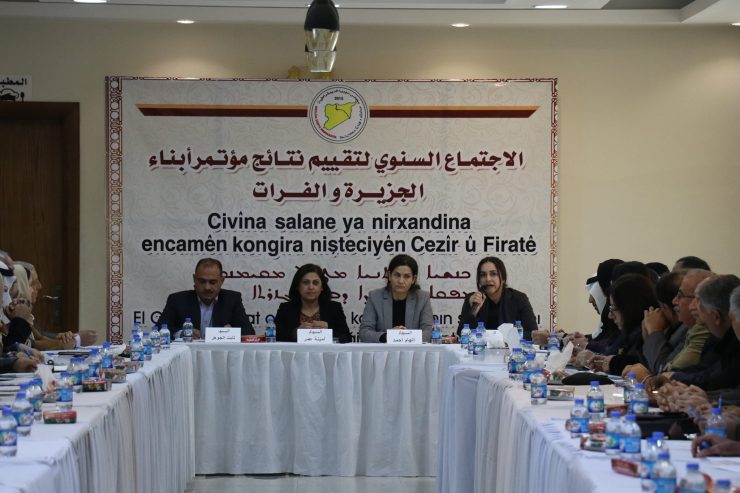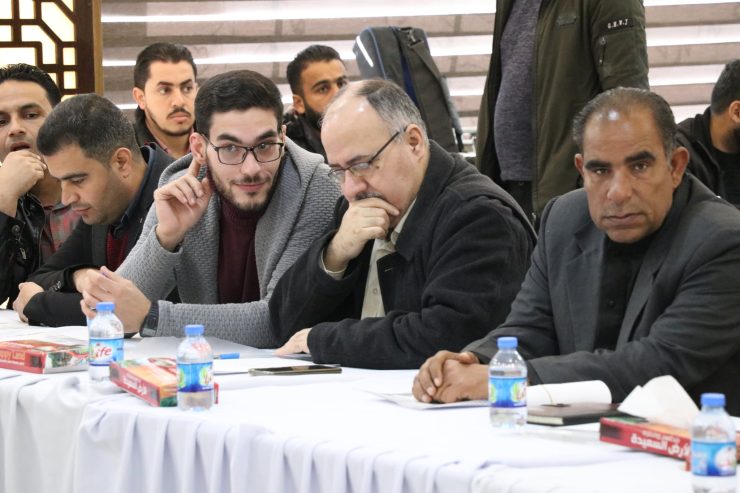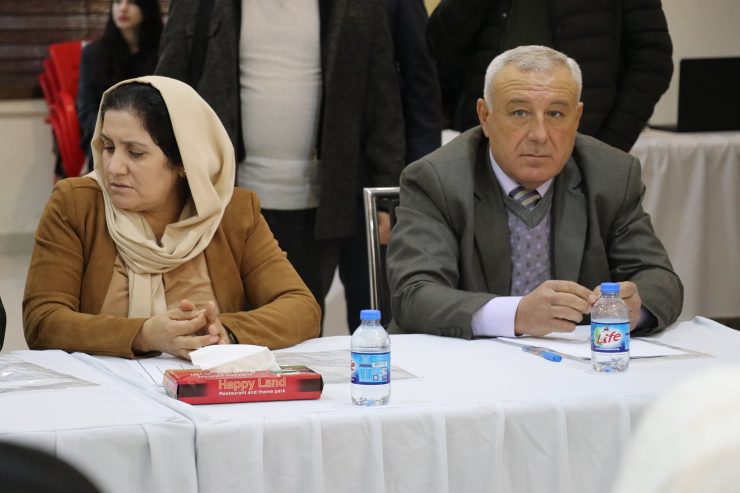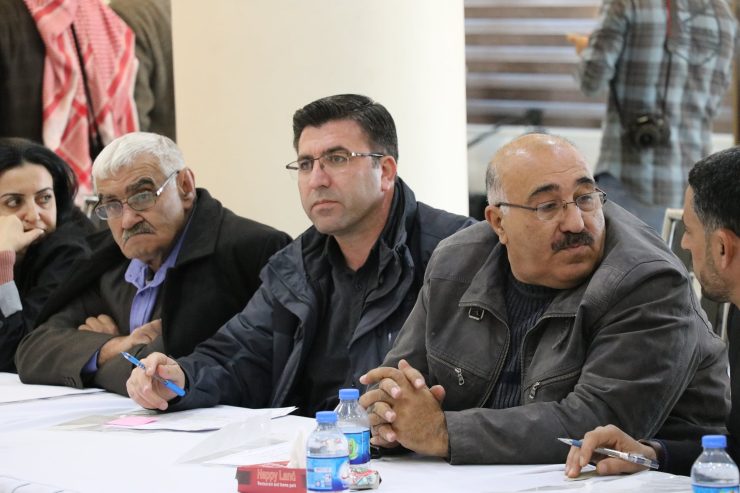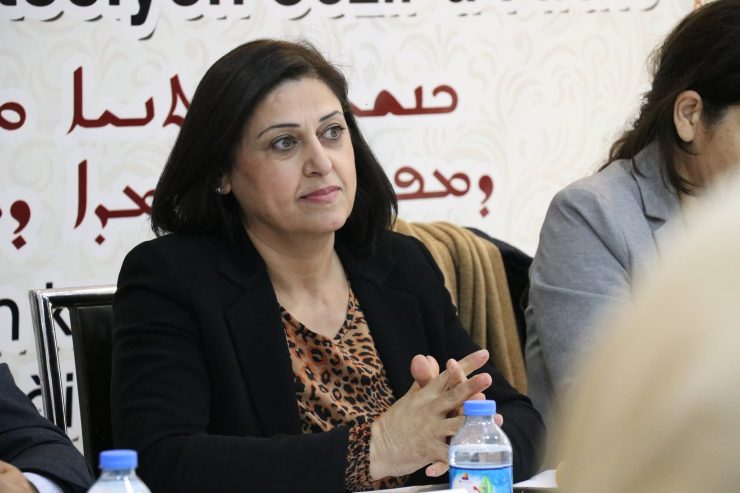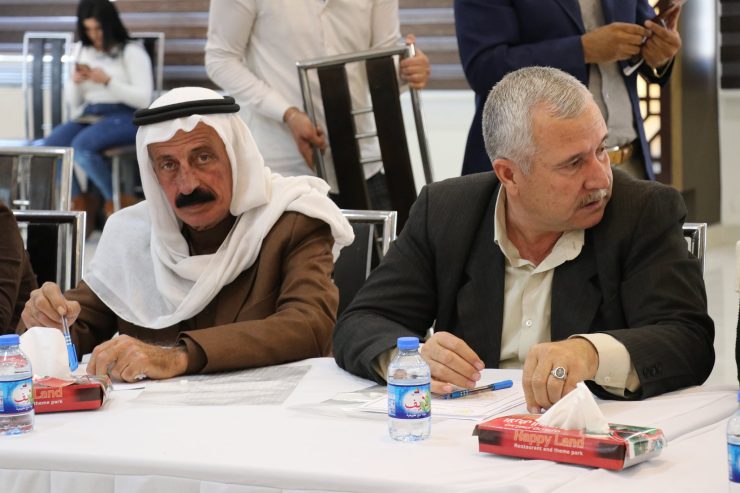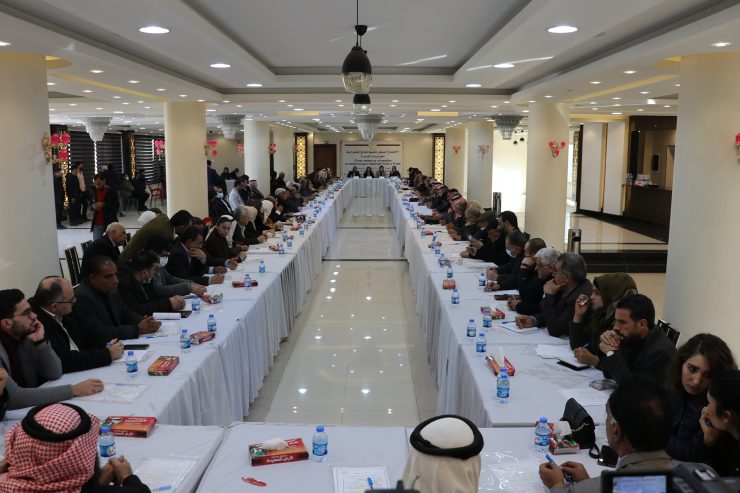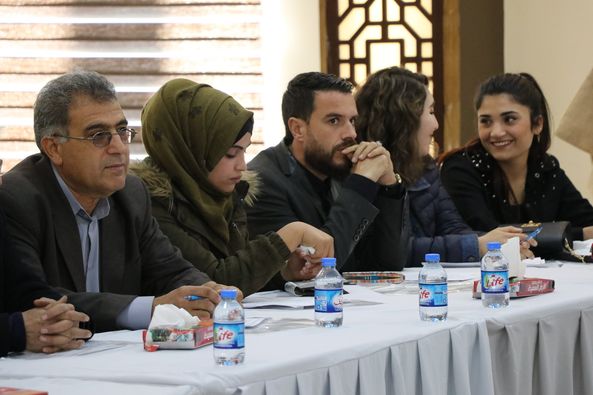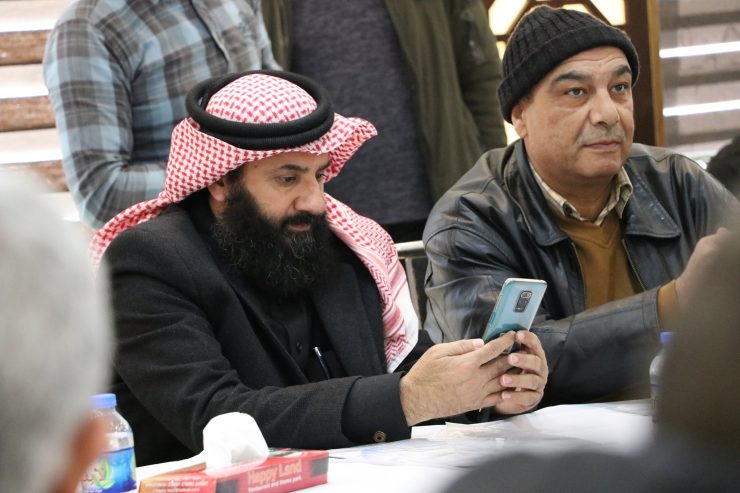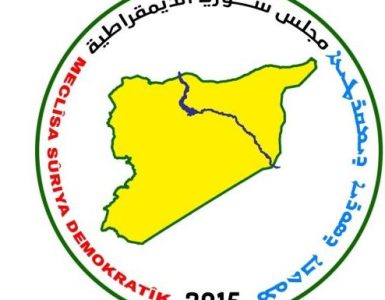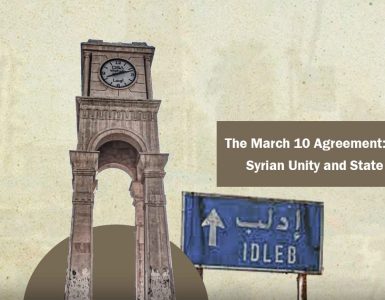Today, on Saturday, December 18th, the Syrian Democratic Council held the annual meeting to evaluate the outcomes of “The People of Al-Jazeera and Euphrates” Conference, in the city of Raqqa, with the participation of politicians, intellectuals, civil activists, and officials in the Autonomous Administration.
At the outset of the meeting, the meeting members reviewed the discussion of the political developments and the displaying of the path of “SDC” to resolve the Syrian crisis, where the Chairwoman of the Executive Body, Ilham Ahmed, stated that “SDC” took distinguished steps regarding the dialogue this year as one of the outcomes of the conference of “The people of Al-Jazeera and Euphrates” and the development of a dialogue, the last of which was the Sweden meeting, which aims to hold a general conference of personages and democratic forces.
“SDC” has a political role in the international community, and it plays its role in accordance with international resolutions, foremost of which is UN Resolution 2254.” She added.
Regarding the dialogue and meeting with the authority in Damascus, the Executive Chairwoman of the “SDC” indicated that “the dialogue with Damascus does not mean its legalization, but rather to provide a role in our seeking to reach a solution in Syria.”
Ahmed stressed the decline regarding the international interest for the Syrian file. “We noticed, during our meetings with the active countries, that the Syrian file has become less important to the international attention and it has changed the file from a political to a humanitarian one.” She said.
Where the humanitarian aid is passed through Damascus and Bab al-Hawa crossing, while the Tal Kojar (Al-Yarubiyah) crossing is closed, which is considered as double standards, and the passage of the international aid to the regions of North and East of Syria is subjected to the mood of the authorities in Damascus, and this is not considered a fair.
Ahmed noted that “the regions of northern and eastern Syria possess the foundations for a solution and can lead a real process for the success of the political process.”
“The point of the international consensus is the stopping of the conflict in all regions, and the course of the Constitutional Committee is not compatible with the current situation. It is not possible to resolve the crisis in isolation from the regional environment.” She added.
Regarding developments of the regional situation, Ms. Elham indicated that “We are watching developments in neighboring countries, whether the crisis of the Turkish lira, the situation in Iran and Lebanon, but the most notable matter is in Iraq and ISIS’s attempt to rebuild itself.”
Regarding the path of developing and modernizing the Autonomous Administration, Ahmed said that SDC is continuing its dialogue with all components and segments of society in the region in order to move forward to improve the model of the Autonomous Administration and expand the base of community participation.
The co-chair of the Syrian Democratic Council, Amina Omar, also spoke that “SDC held Syrian dialogue forums in the regions of North and East of Syria and the Democratic Forces Conference was held, and we have attempts to communicate with the Syrian people in all governorates.”
In the second part of the meeting, it was reviewed reports of the work accomplished within the recommendations of the conference, in which a member of the Follow-up Committee, Lawrence Al-Bursan, read a report on their work and other reports of the entire work of the Autonomous Administration were presented by the co-chair of the Executive Council of the Autonomous Administration, Abd Hamid Al-Mehbash, and the audience started discussions that called for the development of these works and others suggested more implementations of the rest of them.
